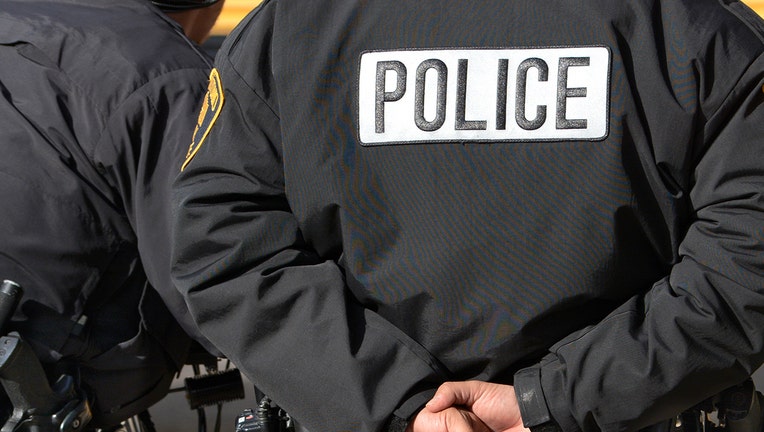Network founded at UNT Dallas helps reduce Texas law enforcement suicide

Two police officers stand in the plaza in front of The Alamo in San Antonio, Texas. (Photo by Robert Alexander/Getty Images)
DALLAS - Suicide among law enforcement officers, once a statistic led by Texas, has fallen greatly throughout the state since the start of a program that kicked off in Dallas.
Mental health experts have been working for years to shine a light on the problem plaguing law enforcement. Getting people to admit when they need help, then getting them resources once they do, and sometimes it can be a matter of life or death.
Mental health and law enforcement
Meet Sgt. Saenz:
Sgt. Zachary Saenz had seen it all in his eight years working for the Edinburg Police Department in South Texas, but it took a tragedy in his own family to realize the work was taking a serious toll on him.
Saenz's grandmother passed away, and when he realized he felt a lack of emotion following the loss, he decided he needed help.
The officer turned to a free application on his phone for help. It linked him with another member of law enforcement, specially trained at crisis intervention.
He didn't want to become another statistic.
Texas Law Enforcement Peer Network
Law enforcement officers are 54 percent more likely to die by suicide, according to research published by the National Library of Medicine.
Just a few years ago, Texas led the nation in the number of law enforcement suicides.
With Texas Law Enforcement Peer Network founder Dustin Schellenger’s help, that statistic has changed.
In 2021, Schellenger launched the network at UNT Dallas. The app links police, sheriff's deputies and even 911 call dispatchers to one of about 900 volunteers who are specially trained to help.
Schellenger says getting past the so-called "tough-guy" syndrome is the hardest part. According to the network founder, it’s difficult for many in law enforcement to admit they need help from an outside source, no matter what they may deal with.
Why you should care:
The network receives funding from the state, and Texas is now one of the few to require officers to complete a mental health wellness course to keep their certification.
Schellenger says since the program launched, suicides among law enforcement have declined roughly 84 percent.
What they're saying:
After using the free service, Saenz says he then had the tools he needed to overcome his struggles.
"It literally saved my life," Saenz said. "I was able to come out of that funk, and able to say, ‘you’re not the only one who feels this way, what you’re feeling is normal.’"
Saenz is grateful to the network operator who responded to his first call for help.
"She was able to help me realize that what I was feeling was normal," Saenz said. "It was a normal reaction to the abnormal stuff we deal with as police officers."
Schellenger drew a comparison between mental health, which some are reluctant to seek out, and physical injuries.
"You would go to seek help if your leg was broken. You would go seek help if you had a laceration and need stitches. How is a certain traumatic event affecting you, any different?"
What you can do:
The network operates with the help of volunteers. To see how you can get involved in supporting law enforcement, click here to visit the network's participation page.
The Source: Information in this article came from Sgt. Zachary Saenz and Texas Law Enforcement Peer Network founder Dustin Schellenger.



